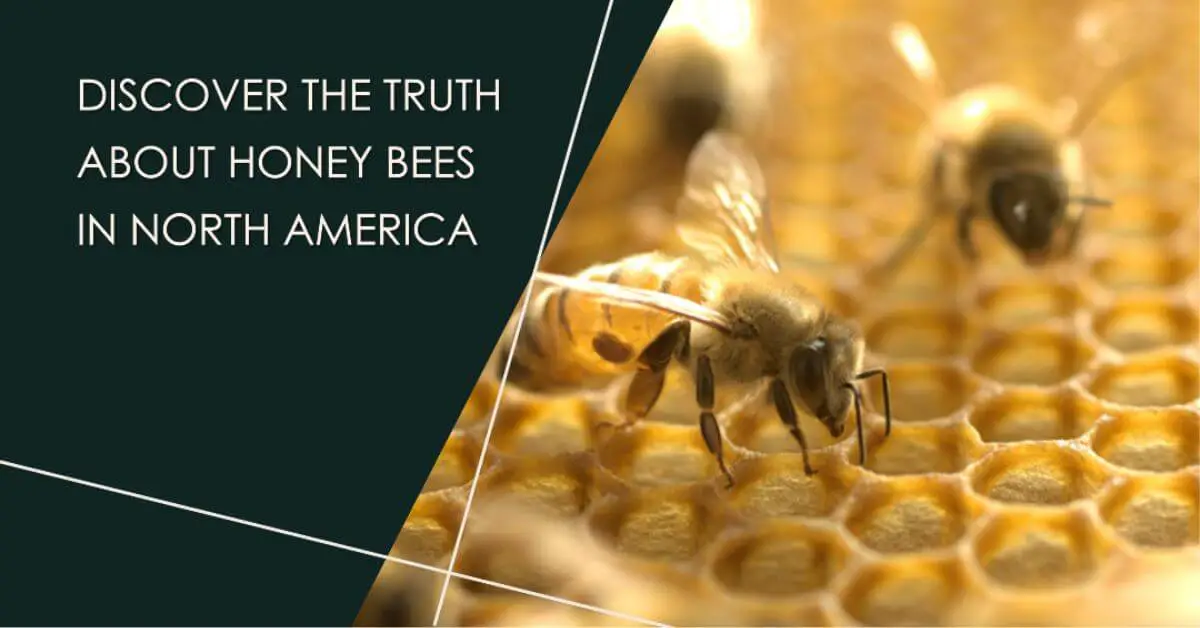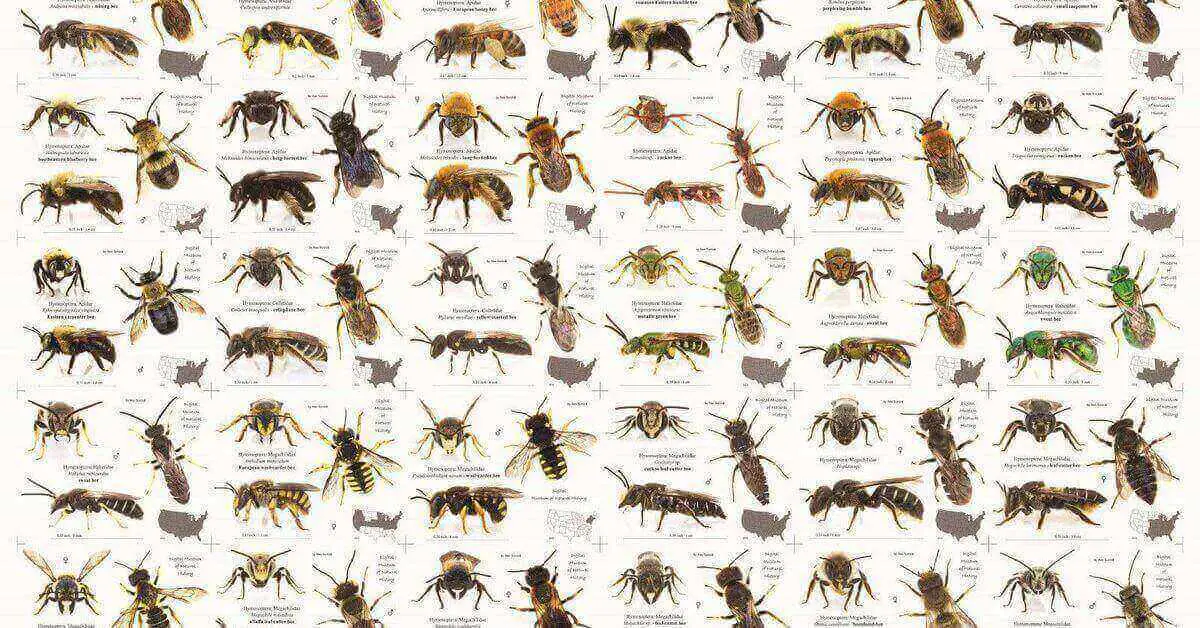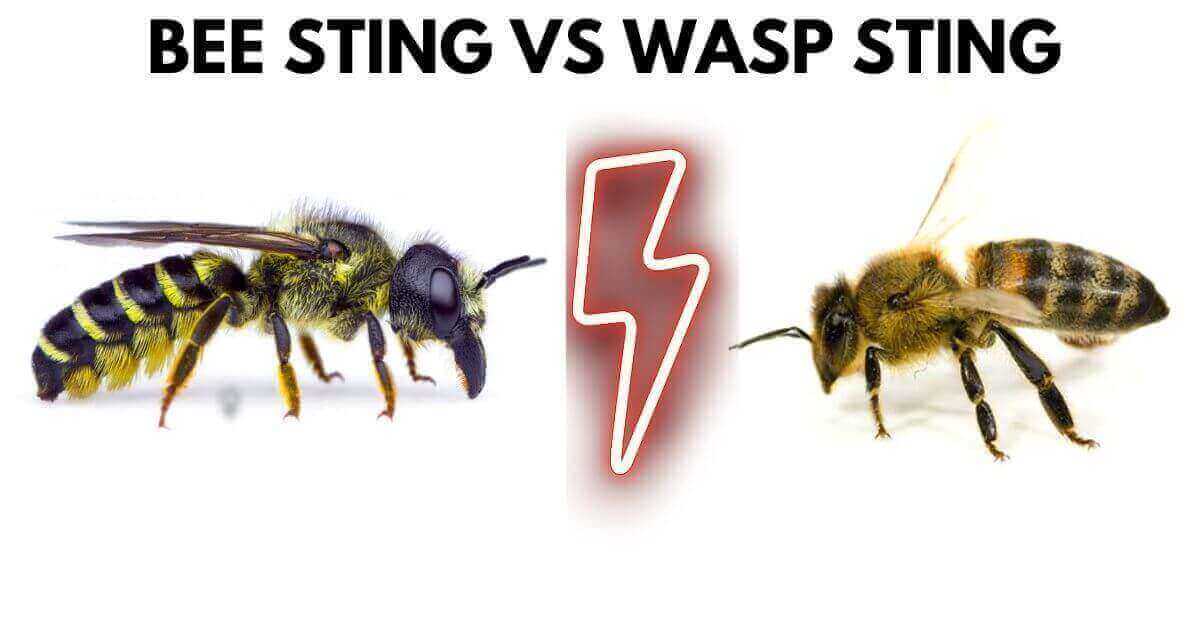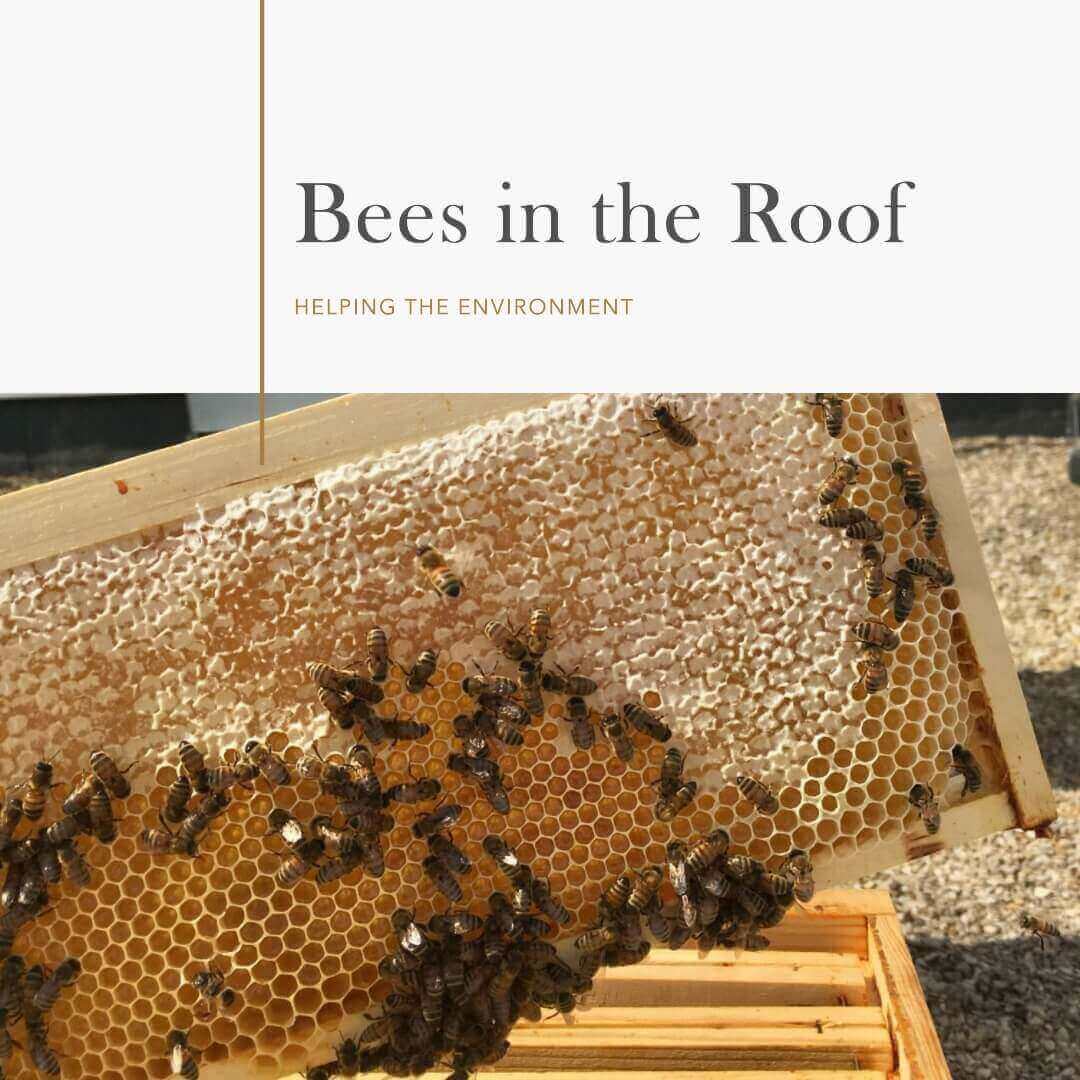In Realty Honey Bees are not native to North America. North America boasts a diverse range of honey bees, with several species in the region. These hardworking insects play a crucial role in pollination, biodiversity, and honey production. In addition to the native species, honey bees have been introduced and thrive in North America. This article delves into the world of North American honey bees, their importance, and the intriguing practice of native beekeeping by Indigenous communities.
North American Honey Bees
Several species of honey bees inhabit North America, with the Western honey bee (Apis mellifera) being the most prominent and widespread. European settlers introduced these bees to the continent in the early 17th century. Over time, the North American environment has witnessed bees adapting well and they are now considered naturalized inhabitants.
List of Honey Bees which are found in different regions of America.
| Scientific Name | Common Name |
| Apis mellifera | Western honey bee |
| Apis cerana | Eastern honey bee |
| Apis dorsata | Giant honey bee |
| Apis andreniformis | Black dwarf honey bee |
| Apis florea | Little honey bee |
| Apis nigrocincta | Philippine honey bee |
| Apis koschevnikovi | Koschevnikov’s honey bee |
| Apis laboriosa | Himalayan giant honey bee |
Native American Beekeeping
Native American communities have been practicing beekeeping for centuries, primarily involving the management of native bee species. Unlike the Western honey bee, which was introduced, these native species include the Eastern carpenter bee (Xylocopa virginica), the bumblebee (Bombus spp.), and the squash bee (Peponapis pruinosa). While these native bees do not produce honey in the same abundance as Apis mellifera. They play a vital role in pollination, helping to sustain diverse ecosystems and local flora.
Importance of Honey Bees in North America
Honey bees, both native and introduced, are essential pollinators for numerous crops, contributing significantly to agriculture in North America. Their role in pollination ensures the production of various fruits, vegetables, nuts, and seeds, boosting food security and supporting the economy. Moreover, their activities enhance the reproduction of wildflowers, contributing to the preservation of natural landscapes and native plant species.
Related Posts:
- The Symbolism of Bees in Different Cultures
- Flowers and Bees – A Symbiotic Relationship b/w Bees & Flowers
- Why are bees important in Agriculture
Are bumble bees native to north America
Yes, bumblebees are indeed native to North America. They are an essential part of the region’s ecosystem and play a crucial role in pollination. Here is some plagiarism-free information about bumblebees in North America:
Bumblebees (genus Bombus) are a group of large, robust, and fuzzy bees belonging to the family Apidae. There are approximately 46 known species of bumblebees, and they are primarily found in the Northern Hemisphere, including North America. Bumblebees are social insects, living in colonies with a queen, workers, and drones.
Where are honey bees native to
Honey bees are native to Europe, Africa, and western Asia. They have a long evolutionary history in these regions, playing a vital role in the ecosystems and environments of these areas. These bees have adapted over time to their native habitats, forming intricate relationships with local flora and fauna. The spread of honey bees to other parts of the world, such as the Americas and Australia, has been largely driven by human activities, including trade and colonization. As they were introduced to new regions, honey bees had varying degrees of impact on local ecosystems, sometimes competing with or affecting native bee populations and plant species.
Honey Production
Apis mellifera, the Western honey bee, renowned for its honey production capabilities. These bees form complex colonies with thousands of individuals working diligently to gather nectar from flowers. They then convert the nectar into honey using enzymatic processes within their hives. Beekeepers, both commercial and hobbyists, harvest this honey, offering a sweet and nutritious delight enjoyed by millions across the continent.
FAQS
Native bees to North America include the bumblebee, carpenter bee, sweat bee, mason bee, and leafcutter bee, among others.
Before the introduction of honey bees, native bees, butterflies, moths, birds, and other insects played a crucial role in pollinating North American plants.
Honey bees are native to Europe, Asia, and Africa.
Yes, honey bees, being non-native, are considered invasive to North America. They were brought over by European settlers and have had significant impacts on native ecosystems and competition with native bee species.
Conclusion
North America hosts a vibrant community of honey bees, ranging from the introduced Western honey bee to native species like the Eastern carpenter bee, bumblebee, and squash bee. The interplay between these bees and their impact on pollination and honey production is a testament to their significance in the region. Furthermore, the time-honored tradition of native beekeeping by Indigenous communities demonstrates a deep understanding of the ecosystem and the importance of preserving these invaluable insects for generations to come.




